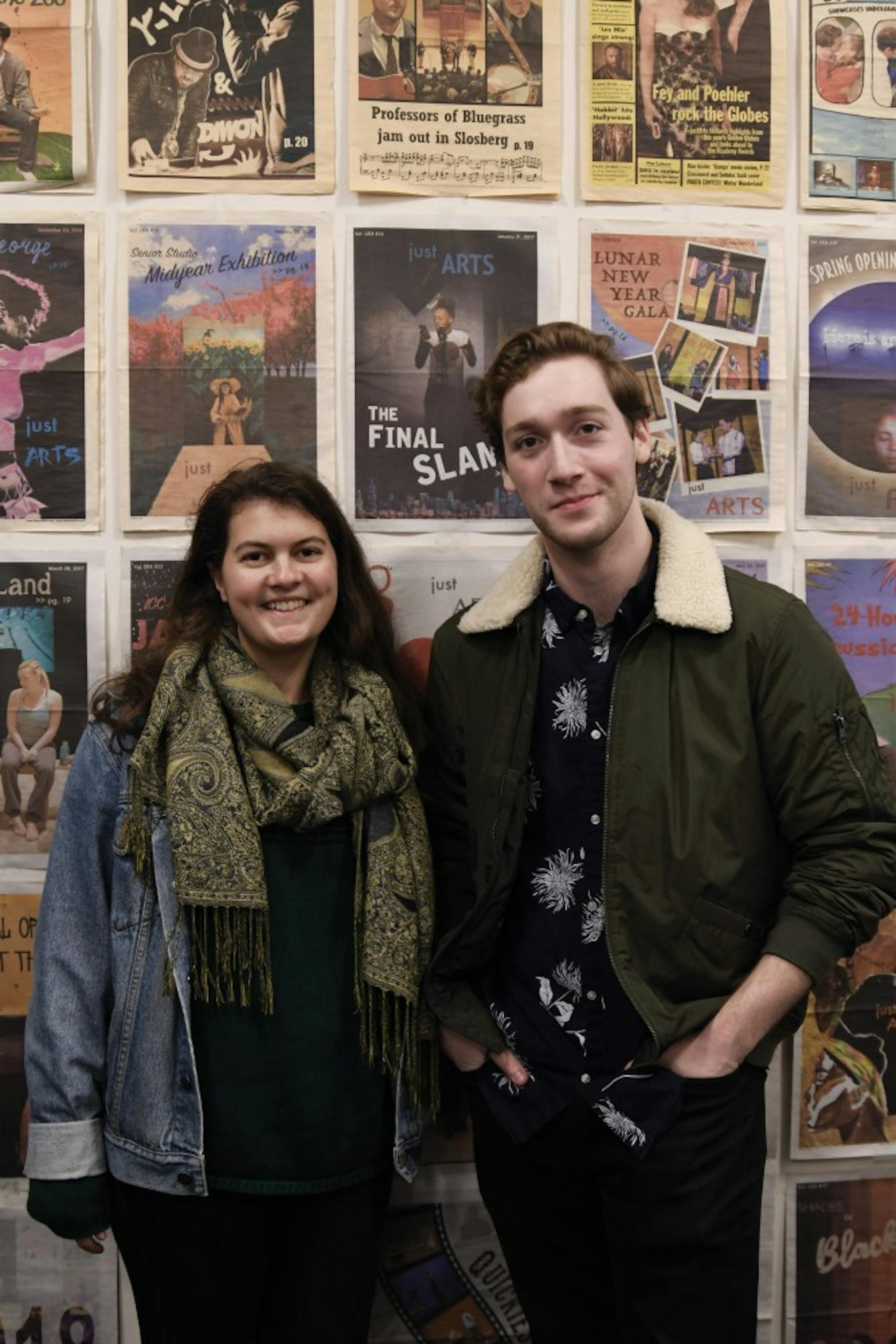Interview with Claudia Davis ’19 and Perry Letourneau ’20
This week, justArts spoke with Claudia Davis ’19 and Perry Letourneau ’20, co-Presidents of sketch comedy troupe, Boris’ Kitchen.
JustArts: How is the writing process for a comedy sketch different than writing a scene in a play?
PL: Writing meetings are so important for comedy. I think for drama you can kind of do a little more on your own and have it be more personal and emotional. For comedy, I think … the community aspect of just laughing with people— I think that atmosphere of sitting around a table with people and doing readings and pitching ideas, that’s the best way. That’s probably the main difference. That’s really the key to the good stuff coming out.
CD: I would say it’s really different from writing a scene in a play because … it has to exist in a vacuum. Usually the writing process starts with … an idea that you think is funny, or a relationship that you think is funny. … And sometimes you have an idea and … [it] might be better as a one-liner or a stand-up set. And then sometimes you think, “That lends itself to sketch,” but then you have to [consider]: how far can you take this idea? If it’s rich and it has a lot of things you can pull out for wordplay or characters, then maybe it’s a long sketch with a lot of people … But you have to really be attentive to the lifespan of a joke, and think, “How long can someone stand to laugh at this?”
JA: Tell me about the most rewarding and most difficult aspects of the sketch writing process.
PL: Sometimes, especially if a new writer comes in, and they have something off the bat and you’re like, “Ooh, this is something special.” And there’s a new person now who’s going to be part of the team. That’s really exciting. I love when that happens. Or if something really unexpected emerges out of it. We had one of our writers do a cameo in this show. And it just emerged out of— in a writers meeting he read for this one role and we [decided that] no one else can play that role. We usually don’t have cameos. … It’s so nice to get these weird unexpected moments.
CD: It’s hard when you’re trying to critique a sketch and there’s not anything to say. I always feel really conflicted about that because it’s [not that] I have nothing to say because I love this and it’s perfect, but it’s also not trash. It’s in this liminal space of “fine.” … Sometimes people make a really airtight sketch that is textbook...good. But it needs to be elevated in some way, and we’re just 20-year-olds f*cking around. I don’t have any formal training in comedy writing. … That gets hard.
JA: What message would you give to someone who is considering joining Boris’ Kitchen?
PL: Try stuff! ... It’s college, you know? If you think it would be fun, just give it a shot!
CD: Also I think it’s fair to say that everyone who is involved with BK … started in a place of a lot of nerves.
—Maya Zanger-Nadis




Please note All comments are eligible for publication in The Justice.